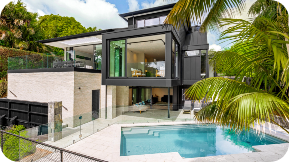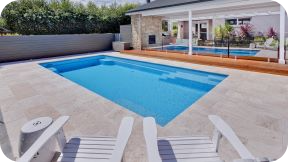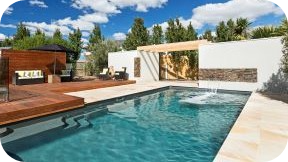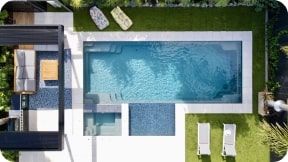Articles
Why it’s a good idea to think like you already own a pool before you buy one
Choosing the Perfect Swimming Pool: Factors to Consider for Long-Term Satisfaction
Purchasing a swimming pool can be an exhilarating experience, but to ensure lasting contentment with your decision, it's essential to envision yourself as a pool owner rather than just a pool buyer.
Key Considerations for Buying a Swimming Pool
When contemplating the purchase of a swimming pool, there are several obvious factors to keep in mind. It's important to give careful thought to:
- Shape
- Size
- Color
- Backyard location
- Salt vs. Chlorine
- Lighting
- Price
While these aspects may initially seem crucial, they often become less significant once the pool is installed and the initial excitement fades away.
Listen to Experienced Pool Owners
Speak to any pool owner who is even slightly dissatisfied, and you'll likely hear comments like:
- "We don't utilize it as much as we had hoped."
- "The kids neglect to clean it, making it another chore for me."
- "The operational costs are higher than anticipated."
- "We find ourselves conducting more pool maintenance than we'd prefer."
- "It doesn't maintain its initial visual appeal."
In other words, the aspects that matter most to you after the pool is in place often differ from what mattered most when you were selecting which pool to purchase.
Maintain the allure of Your Swimming Pool with the Right Choices
Considering this, here are a few points worth contemplating while evaluating your options:
1. What Does Life Look Like as a Pool Owner?
Most individuals aspiring to own a pool envision enjoyable and relaxing moments with friends and family. They often imagine a resort-style experience at home. Before making your decision, it's wise to understand the time, effort, and cost involved in pool maintenance.
If you find yourself frequently cleaning the pool or preparing it for swimming before each use, you might end up utilizing it less than expected. This is where a self-cleaning system like Vantage can be advantageous. With such a system, the pool remains clean, eliminating the need for manual vacuuming or dealing with pool cleaners. You can jump right into the water without any additional work.
2. How Will You Use the Pool?
Spend some time reflecting on the purpose of your pool. Will you use it for exercise, casual relaxation, or recreational activities? Knowing how you intend to spend your time in the pool will help you choose the appropriate shape and increase the likelihood of utilizing it to the fullest.
3. How Important are Low Running Costs and Maintenance Expenses?
Ongoing expenses related to pool operation can be bothersome for some individuals. The good news is that by considering this aspect during the purchasing process, you can make choices that minimize maintenance and running costs.
There are typically three cost centers associated with pool ownership:
- Electricity for running pumps, filtration equipment, and heating systems (if applicable)
- Chemicals for maintaining water balance and safety
- Maintenance to preserve the pool's visual appeal
Pool filtration significantly influences these cost centers. A well-circulated pool minimizes expenses. When the water is properly mixed, there is no stratification, ensuring even temperature distribution and reducing chemical usage and heat loss. For example, the Compass Vantage system reduces chemical consumption by approximately half compared to a traditional pool filtration system.
Choosing efficient pool equipment is another way to reduce ongoing costs. Modern pool management equipment offers advanced features. Energy-efficient pumps can significantly reduce electricity consumption, but it's crucial to pair them with an enhanced circulation and filtration system to maintain water quality without compromising efficiency.
Automated chemical dosing systems, such as salt chlorinators and pH monitoring systems, reduce the time and expenses associated with pool maintenance. They help maintain the appropriate chemical balance effortlessly.
It's essential to consider the quality of your equipment as well. Investing in underperforming or cheap equipment can lead to additional maintenance and repair costs, undermining your savings.
When it comes to long-term maintenance, different pool types have varying requirements. Concrete and vinyl liner pools often necessitate regular resurfacing and relining, while most fiberglass pools require minimal maintenance beyond routine cleaning and water balance management.
4. How Good Will Your Pool Look in the Future?
Remember that we spend more time looking at our pools than swimming in them. Your pool becomes a significant visual feature of your home, and it should be enjoyed year-round.
While all pools look impressive initially, not all withstand the test of time. Conduct thorough research to ensure that your chosen pool will maintain its aesthetic appeal well into the future.
Inquire about cosmetic and structural warranties and seek product reviews to ensure you're purchasing a quality pool. Did you know that every Compass Pool undergoes strict quality control measures to guarantee a lifetime of durability and one of the longest interior surface cosmetic warranties in the industry? Each pool is assigned a unique number, meticulously tracked throughout the manufacturing process, ensuring adherence to our promised standards.
Will Your Pool Enhance Your Home's Value?
If you think you’ll end up selling your home in the future it would pay to consider how your pool will impact the sale of your home when the time comes to move on. The more potential buyers perceive the pool as an asset rather than a liability, the better the chances of it contributing to a higher sale price.
To ensure your pool's attractiveness to future owners:
- Choose a size and shape that appeals to a wide range of individuals. (also consider depth a pool that runs shallow-to-deep offers something for everyone)
- Keep running costs low, as people tend to favor cost-effective pools.
- Minimize the effort required to maintain the pool, making it more appealing to potential buyers.
- Seek a pool with robust warranties that can be transferred to the new owners.
Thinking Like a Pool Owner: Selecting a Pool for Long-Term Satisfaction
In conclusion, consider this:
While the process of buying and installing a swimming pool may take a few months, the average pool owner enjoys their pool for approximately 10 years (120 months). To maximize the value of your pool and ensure complete satisfaction, focus on the factors that will impact your enjoyment in the months and years following the purchase.
If you require guidance during the decision-making process, reach out to your local Compass Pools dealer. Our pool consultants can assess your backyard, discuss your preferences, and provide recommendations tailored to your needs. Best of all, this service is entirely free, and there is no obligation to purchase a pool. So why not take advantage of this opportunity?
Read more articles

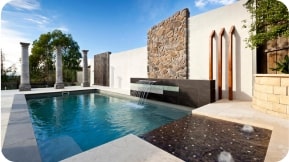
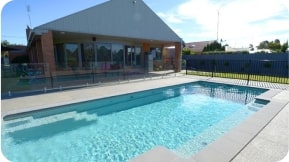
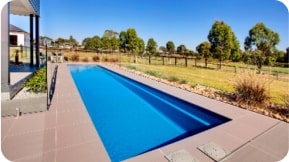

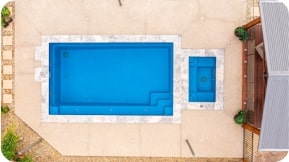
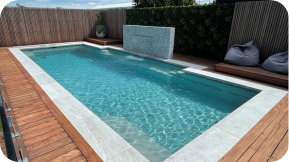
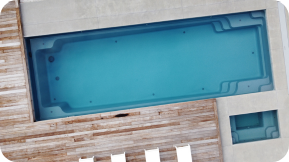
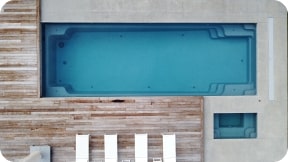
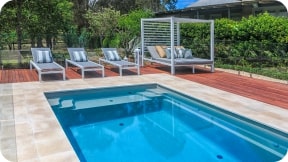

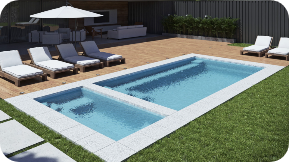
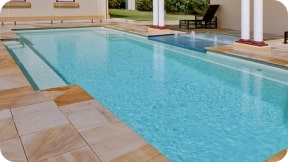
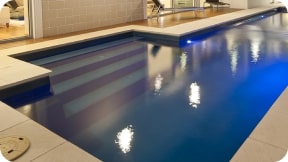

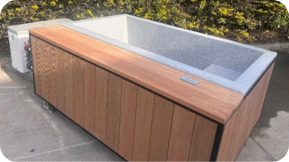






.png)

